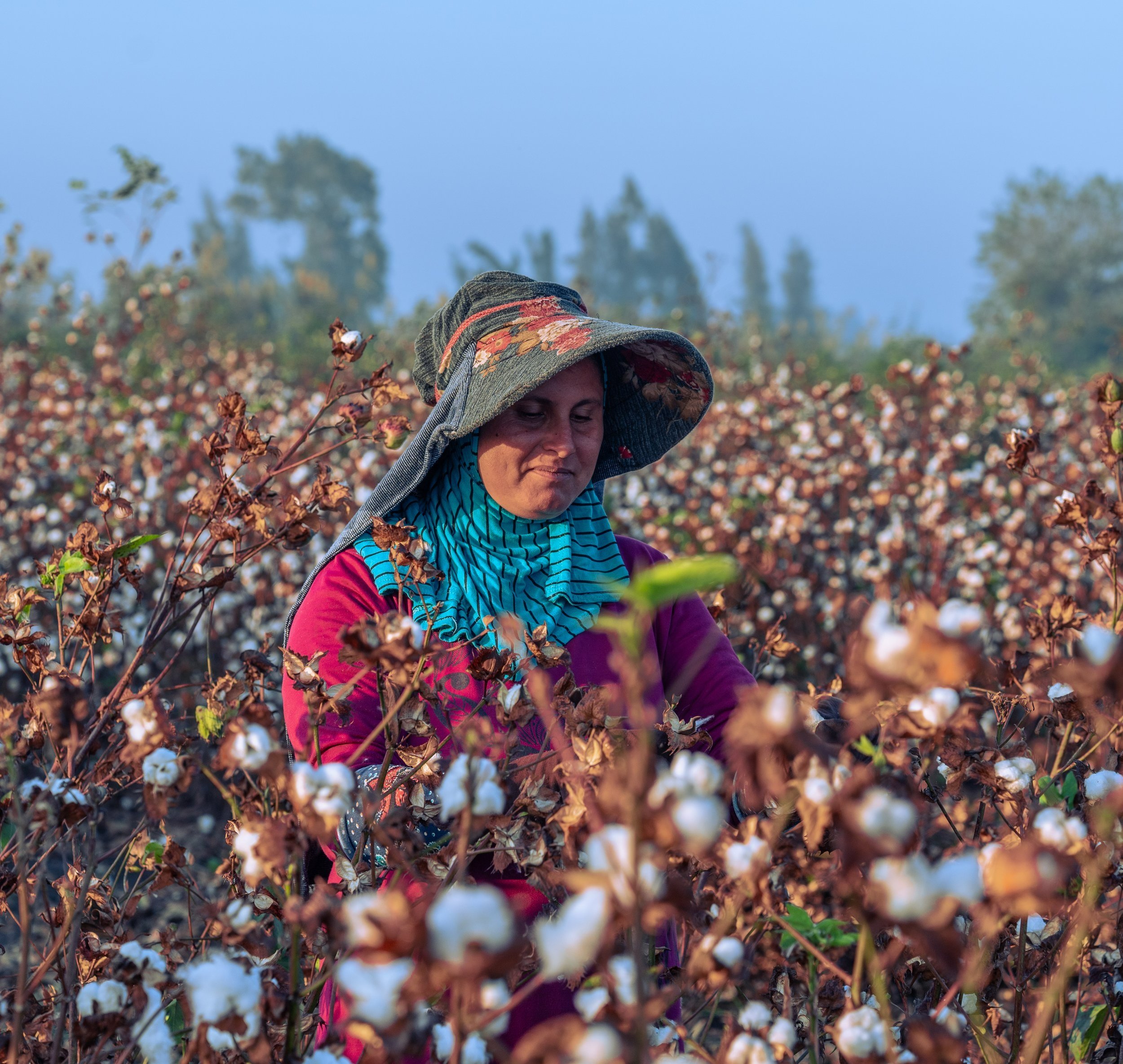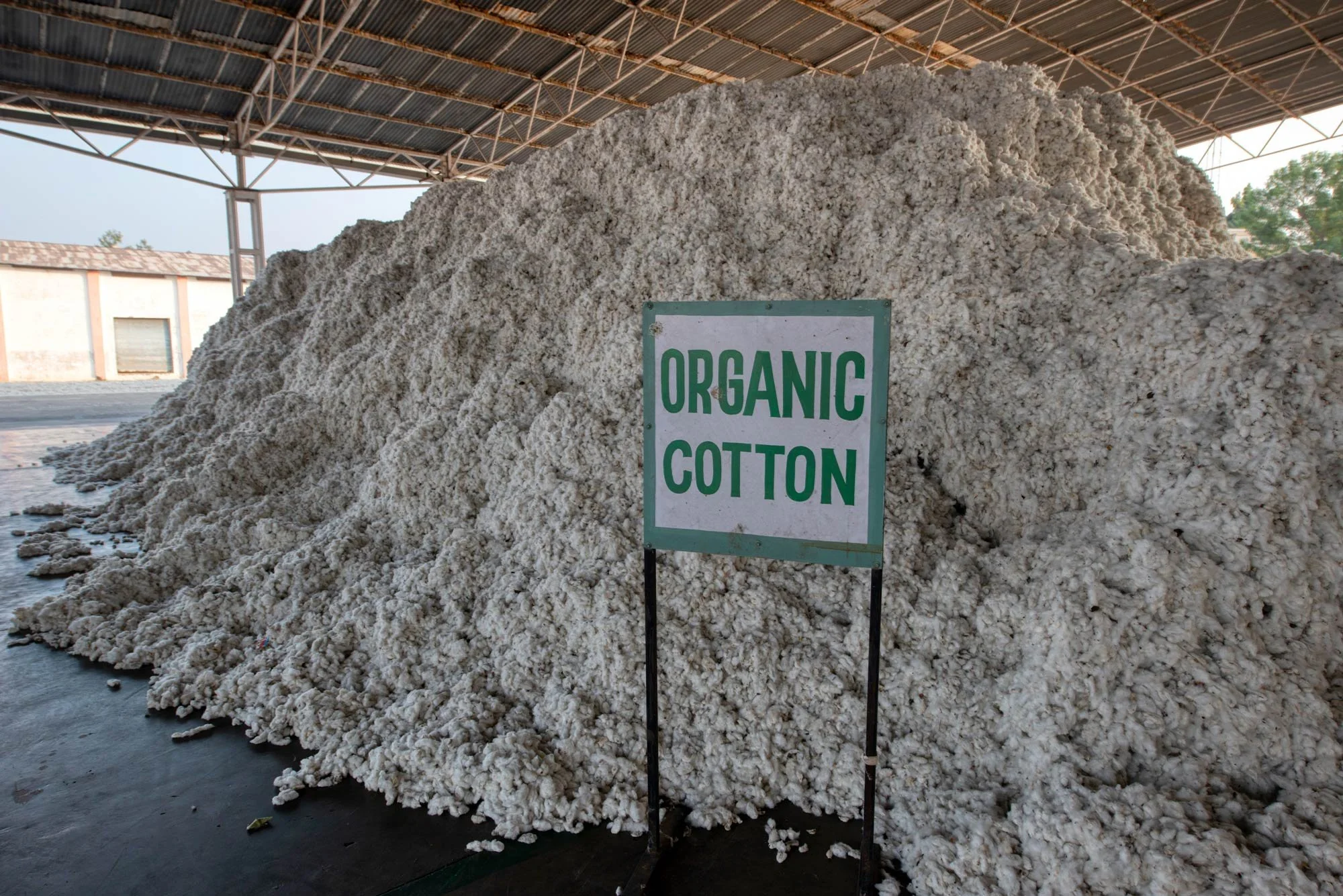OUR IMPACT
Positive, measurable value
How we drive ESG performance for brands and retailers.

We have always been focused on delivering positive, measurable impact for the smallholder farmers taking part in our programmes, for their communities, and for the environment.
After all, true responsibility comes from not only understanding activities and outcomes of interventions to improve sustainability, but also the impact.
For more than 13 years, CottonConnect has delivered agricultural training programmes to increase cotton farmers’ incomes, profitability and productivity.
It’s not just about reducing the negative impacts of cotton cultivation on the environment. We also look at the positive impact our programmes have on the natural environment through improved soil health, biodiversity and water management.
We are also building the resilience of cotton farming communities by enhancing gender equality, financial equity and involving farmers in decision-making.
Our impact in 2022-23
In the cotton growing year 2022- 23 CottonConnect trained over 523,516 farmers in sustainable agricultural programmes in India, Pakistan, Bangladesh and China.
The cotton grown is directly traceable through supply chain linkages into brands’ supply chains. In 2022-23, 170,250 MT cotton was traced through CottonConnect’s traceability software tool TraceBale.
Our core programmes have delivered positive impact results in all the environmental and social areas we measure. Our REEL Cotton Programme, with data aggregated from all programmes in 2022-23, has increased profit for REEL Cotton farmers by 47% (compared with control farmers). You can find out more about our REEL programmes here.
The sustainable agricultural practices have reduced the impact of cotton farming on the environment, with:
Chemical pesticide use reduced by
17.1%
Chemical fertiliser use reduced by
14.4%
Water use reduced by
21.6%

“Celebrating its 10th anniversary, the Primark Sustainable Cotton Programme is a partnership between Primark, CottonConnect and RUDI, part of the Self-Employed Women’s Association, as well as other local partners REEDS, TMSS and MYRADA, and has evolved into the largest partnership of its kind for a single fashion retailer. The programme supports the livelihoods of the farmers involved by equipping them with the knowledge and skills to grow cotton using less chemical fertilisers and pesticides, and reduced reliance on water. I’m proud that we’ve now trained nearly 300,000 farmers across India, Bangladesh and Pakistan through this programme and look forward to our continued partnership with CottonConnect.””
– Kerry Conway, Primark Sustainable Cotton Programme Lead, Primark
Promoting organic cotton
We help brands and retailers improve access to organic cotton, ensuring a resilient supply and maintaining high quality.
CottonConnect’s Organic Cotton Farmer Training Programme supports farmers as they transition from conventional cotton growing to organic cotton practices.
In 2022-23, 100% of farmers in our organic cotton programme adopted organic pest management and soil fertility management practices.
Improving health and safety at gins
Brands and retailers can have confidence that health and safety continues to be a priority in their supply chain. CottonConnect has developed a Health, Safety, Security and Environment (HSSE) programme to improve health and safety at gins.
In 2023, CottonConnect published the first-ever Responsible Business for Gins Code of Conduct, designed to raise the standards in the crucial process of ginning in the cotton supply chain.
The aggregated results from all HSSE Gin programmes in India, Pakistan, Bangladesh and China in 2022-23 show an improvement in health and safety indicators, including:*
Compliance with safety aspects: : 87% (baseline at 39%)
Adoption of precautionary measures: 79% (baseline at 63%)
Usage of Personal Protective Equipment (PPE) by gin workers: 96% (baseline at 59%)
Availability of proper Water, Sanitation and Hygiene (WASH) facilities for gin workers: 96% (baseline at 59%)
*The baseline is aggregated baseline measurements recorded from HSSE programmes in 2022-23.
Our impact results offer assurance that we continue to take a holistic approach towards strengthening cotton supply chains and meeting the needs of the textile industry – by supporting producers to sustain and improve their livelihoods, reducing the impact on the environment and climate, and ensuring end-to-end traceability.
Our strength has always been in listening to farmers; by directly asking about their needs and priorities, we continue to ensure that our programmes robustly meet their requirements, now and in the future.

Get in touch
Interested in how our REEL programmes can support you? Give us a call.






